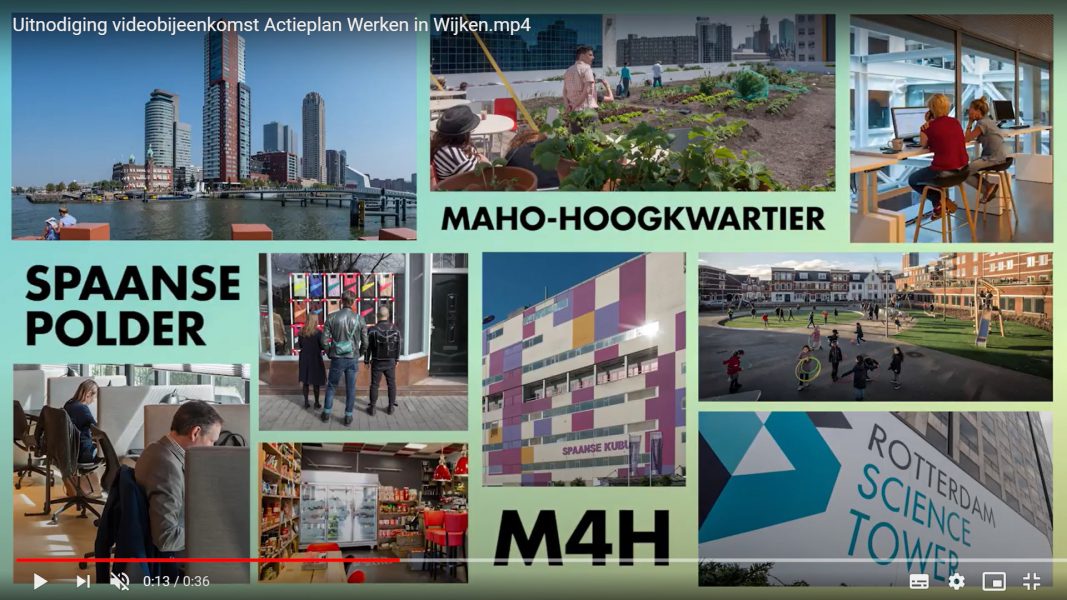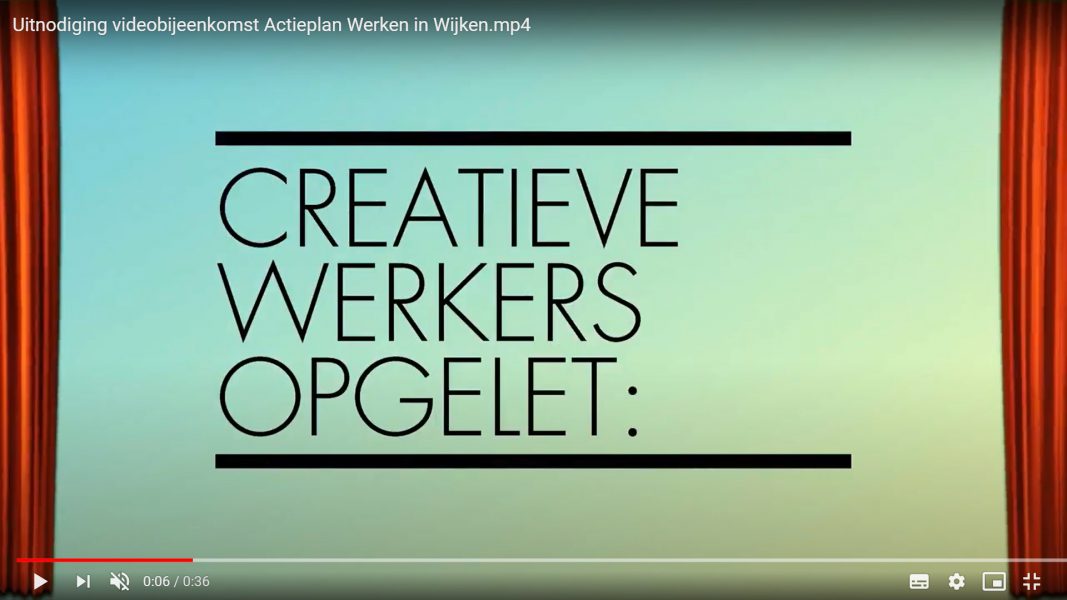
Working in Rotterdam’s districts
“The Werken in Wijken initiative has unleashed a special kind of energy in Rotterdam.”
STIPO advises the Municipality of Rotterdam in creating and maintaining affordable workspaces in the city. As a result of the increased popularity of Rotterdam as a business location, affordable work and retail space has become scarcer in recent years for Rotterdam’s SME sector. This is becoming increasingly apparent in several areas of Rotterdam, and something needs to be done about it. The city of Rotterdam has taken the initiative to draw up a ‘Werken in Wijken’ (Working in Districts) action plan and has asked STIPO to set up a procedure for this purpose.
Citymakers, entrepreneurs, civil servants and property owners entered into a dialogue with each other during many sessions in the autumn of 2019 and spring of 2020. These sessions looked at which parties play a role in this process and how they can work together. They also analysed which instruments can be used and which knowledge and insights are relevant to develop an effective approach for the preservation and creation of (more) affordable work and retail space.
Experimental areas for affordable workspaces
Subsequently, nine comprehensive sessions, a working visit to The Hague and various one-on-one discussions were held. Many Rotterdam parties participated, including SME entrepreneurs, private owners, developers, citymakers, managers of business centres, housing associations and the municipality. Various research reports and policy documents were also studied to see if they were relevant given the framework of the assignment. All of this generated important insights into everyone’s perspectives and interests, and how they subsequently view the task of creating suitable and affordable office and retail spaces for SMEs.
The analysis provided the basis for the selection of three experimental areas, and various instruments will be used to look at how we can create more affordable workspaces and how we can retain the suitable space that’s already there. These areas were selected because they differ in terms of the task, instruments and parties involved.


- The first experimental area is Maho Hoogkwartier in the eastern part of Rotterdam’s centre. The problem here is gentrification, as a result of which in property prices are increasing and creating a shortage of suitable space for SMEs. This process makes local tenants and citymakers feel powerless. The Werken in Wijken team wants to develop a joint area vision in Maho that creates and retains more business activity in the area.
- Keilekwartier, the second area, is located in the Makers district M4H and is an area in transformation. The optimisation of municipal revenue can result in an inadequate supply of affordable SME space. On the other hand, SMEs may not be wanted in a mixed ‘residential and work’ district. That’s why it’s important to reserve space for creative SMEs in Keilekwartier. Werken in Wijken wants to achieve this by buying up spaces and plots, splitting them up, and renting them out.
- The last experimental area is a business park in Rotterdam Noord called Spaanse Polder. There is some vacancy in buildings on the business park. Werken in Wijken’s aim in this area is to make optimal use of the industrial buildings there by accommodating suitable SMEs.
We form a coalition in each area that works towards making improvements. This includes the possibility of deviating from municipal policy, lowering rent and allotting space for temporary use.
Citywide instruments
In addition to these three experiments, STIPO is working with partners on citywide instruments, such as a fund that can provide low-cost loans for small-scale investments for the transformation of vacant buildings. Or an alternative municipal land pricing policy to give low-yield functions a chance in combination with rent reduction by private owners. The municipality’s strong real estate portfolio can assist in making space available, either temporarily or permanently, for citymakers and cultural entrepreneurs. This is the first step towards boosting the district’s economy and liveliness, and there are more to follow.

